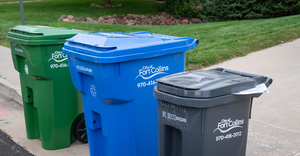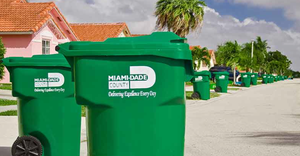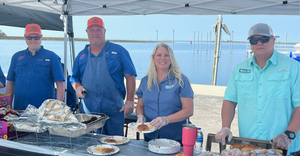Episode 80: Investing in a Circular Economy
In our latest episode of NothingWasted!, we chat with Rob Kaplan, founder & CEO of Circulate Capital.Circulate Capital is an investment management firm dedicated to financing innovation, companies, and infrastructure that prevent the flow of plastic waste into the world's ocean while advancing the circular economy.
We spoke with Kaplan about the impact of COVID-19 on ocean plastics, catalyzing capital, how to leverage partnerships, entrepreneurship in the industry and more.
Here is a sneak peek into the discussion
Waste360: Can you tell us about Circulate Capital and the work you do?
Kaplan: We founded the company in the summer of 2018 and have now raised our first fund, which is called the Circulate Capital Ocean Fund. We invest in companies, technologies, and projects that prevent plastic pollution and advance the circular economy.
One of the most unique things about our strategy is that the Ocean Fund is backed by several large corporations — so we’ve raised just over $100M from PepsiCo, who was our first investor, but also Coca Cola, Unilever, Proctor & Gamble, Dow, Danone, Chevron Phillips Chemical and others. And we’re working with start-ups and SMEs primarily in India and Indonesia, but also across Southeast Asia, that are on the frontlines of fighting plastic pollution and advancing recycling.
Waste360: What is the biggest challenge you’re seeing on the ground?
Kaplan: We’re primarily focused on the infrastructure side of the equation. One of the good things about the markets in the region is that there is a lot of low-hanging fruit. So there’s a lot of opportunity to really leapfrog the systems that have been in use here to-date. We don’t have to worry about legacy infrastructure like in the U.S. or Europe.
Waste360: What do you say to people who think the ocean plastics problem is primarily an issue in Asia, and it’s that region’s responsibility to fix it?
Kaplan: One of the things we’ve learned over the past few years is that plastic pollution is really a global problem, and it hits us back home in the U.S. in a couple of key ways.
First of all, the U.S. still exports a lot of waste, and often times you find that it’s the waste entering the environment in Asia that was originally used and disposed of in places like the U.S., Europe, and Australia. And, if you want ocean plastic stopped, it doesn’t matter if you’re in Cape Cod or California, you have to go to the source.
Waste360: Do you feel that the pandemic has really put a spotlight on the issue of ocean plastic and a need to focus on sustainability?
Kaplan: Yes, I think so. There is more talk of resiliency and long-term sustainability. The topic of ocean plastic really became a priority because of consumer outrage —people saying this was unacceptable. And we would expect that outrage to increase alongside the pandemic, and the increasing issues with disposal of single-use plastics and PPE.
Waste360: What do you think the role of the waste and recycling industry is, in supporting a circular economy?
Kaplan: Right now, we live in a world where the waste and recycling industry manages most of the material that has the potential to be circular. But there are incredible inefficiencies in the system. I view it as an opportunity to bring in new technologies to enhance the existing systems and achieve the promise and aspiration of the fully circular economy. The industry is a critical enabler to get us there.
#NothingWastedPodcast
About the Author
You May Also Like




